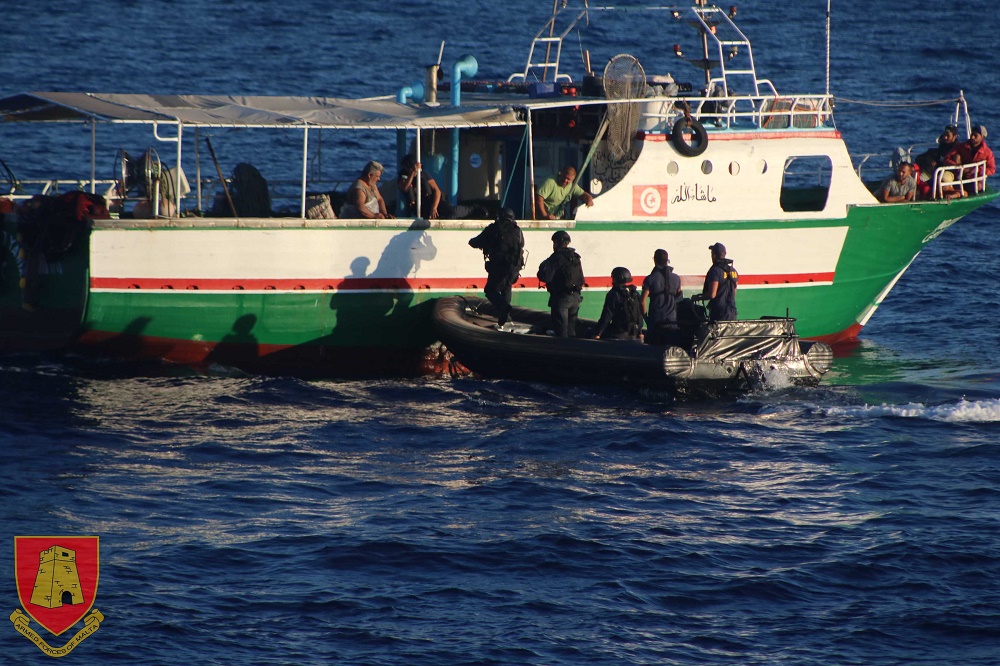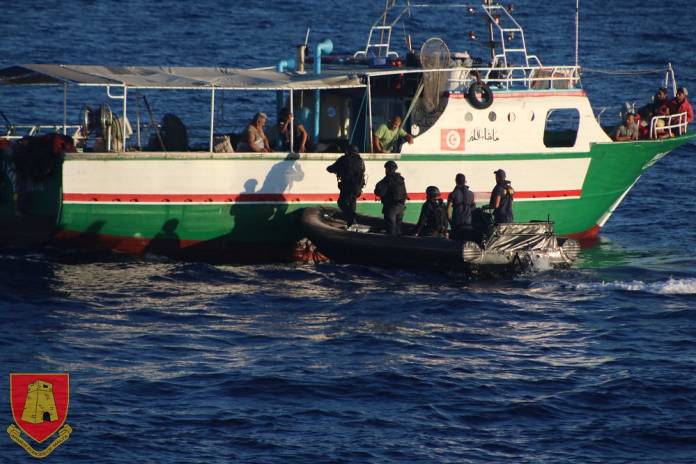Government has ramped up its campaign against illegal fishing in Mediterranean waters, with agriculture minister Anton Refalo defending his ministry’s year-round efforts to combat unauthorised fishing activities that threaten local livelihoods.
Speaking amid growing concerns over illegal lampuki fishing, Refalo claimed that the government’s work extends far beyond the seasonal dolphinfish period.
“The Government is not only committed to defending Maltese and Gozitan fishermen, but also to looking towards the sustainability and future of fishing in our country,” the minister said.
The controversy centres on social media footage showing Italian and Tunisian vessels allegedly catching lampuki before the legal season opens on 15 August. Under Mediterranean fishing regulations governed by the General Fisheries Commission for the Mediterranean (GFCM), lampuki can only be legally caught between mid-August and December using Fish Aggregating Devices (FADs).
Malta’s response has been swift and coordinated. When videos began circulating on 1 August showing Mediterranean fishermen catching lampuki illegally, the Department of Fisheries and Aquaculture immediately informed the European Fisheries Control Agency (EFCA). This prompted EFCA to urgently convene its lampuki nets working group on 7 August.
Following Malta’s proposal during Thursday’s meeting, the Ocean Sentinel patrol vessel was deployed to monitor the Strait of Sicily by Thursday evening. The vessel, which arrived in Malta last June, had already been conducting inspections near Sicily as part of increased European surveillance efforts.
“This is further clear evidence of how effective the Maltese authorities are being in the European institutions,” government sources noted, highlighting Malta’s growing influence in regional fisheries management.
Junior minister for fisheries Alicia Bugeja Said stressed the country’s commitment to balancing protection of local fishing communities with environmental sustainability. “Malta will continue to support our fishing communities whilst ensuring that our seas are responsibly protected for future generations,” she said.
The illegal fishing crisis has intensified pressure on Malta’s fishing industry, which already faces significant challenges. Last year saw reduced lampuki catches, partly attributed to climate change effects on Mediterranean sea temperatures. Rising heat caused earlier temperature increases than usual, directly impacting the lampuki season and migration patterns.
To address these environmental concerns scientifically, the Department of Fisheries and Aquaculture is conducting a comprehensive study on climate change’s impact on the lampuki fishery. This research aims to provide evidence-based arguments to European institutions for potential seasonal adjustments.
The issue has sparked political tensions, with Labour MEP Thomas Bajada demanding urgent European Commission intervention over the alleged violations. Nationalist MP Peter Agius has also criticised the government’s response, claiming he raised concerns a year ago but authorities failed to report the illegal activities to EU bodies, leaving Maltese fishermen at a disadvantage.
However, Refalo’s ministry points to several achievements, including successful lobbying for increased EFCA vessel numbers in the Mediterranean and securing recommendations at both regional and European levels. The government also references European Commissioner Costas Kadis’s June visit to Malta, undertaken specifically to understand Maltese concerns and meet local fishermen.
Malta’s approach emphasises working within existing legislative frameworks rather than encouraging rule violations. While authorities are lobbying European institutions to consider seasonal adjustments due to climate factors affecting lampuki migration, they maintain that changes must come through proper legislative processes.
The ministry has called for continued cooperation from fishermen and related organisations, requesting they report illegal fishing incidents via email or social media, providing videos, coordinates, and vessel information. This evidence will strengthen Malta’s position at the annual GFCM meeting scheduled for early November.

